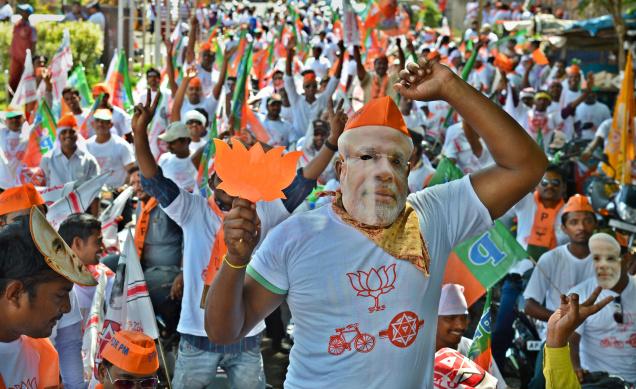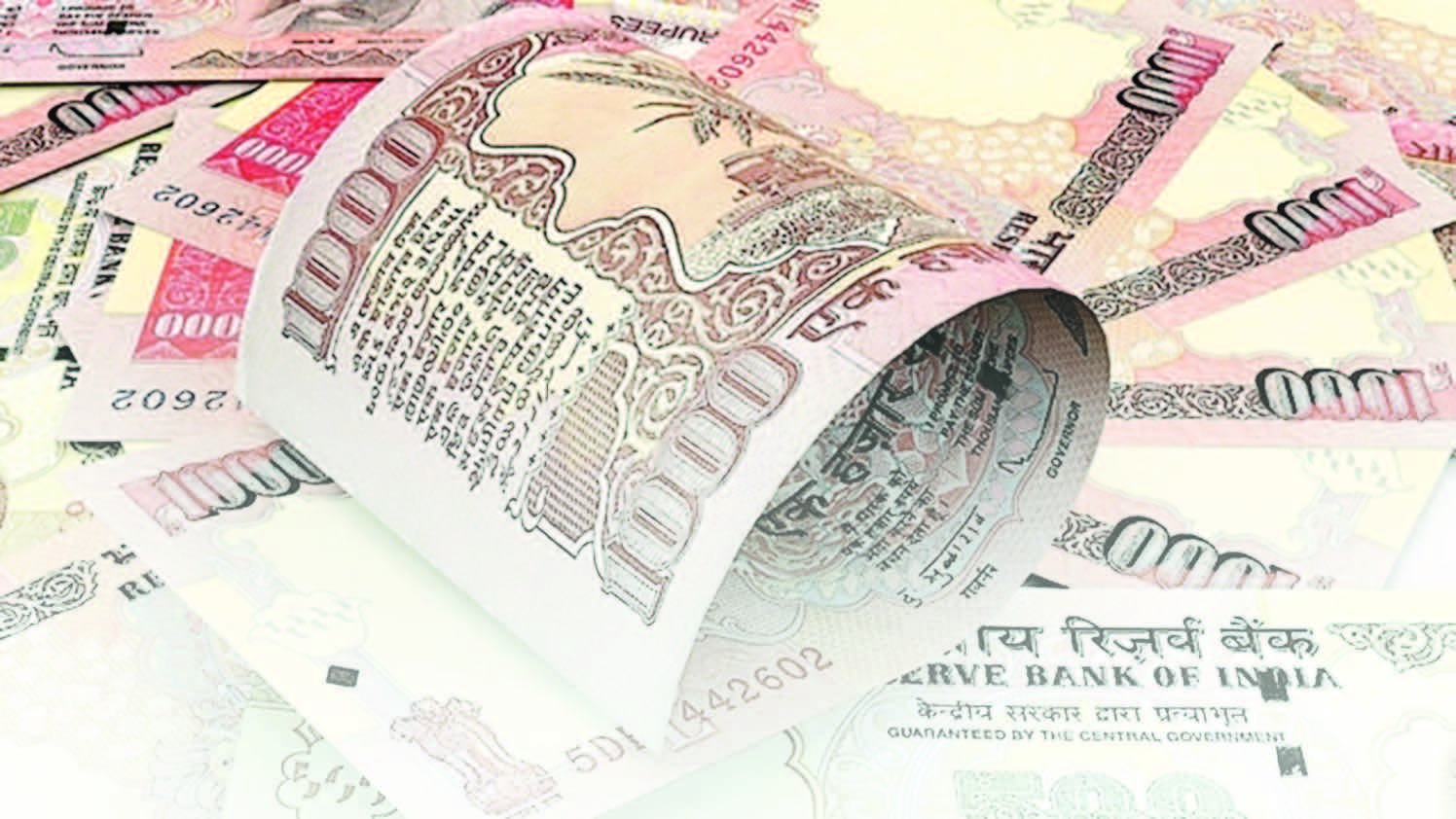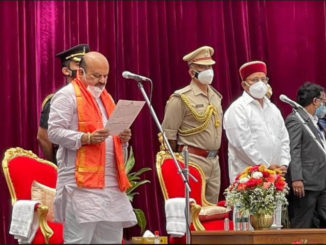
The question I have been asked most often over the last two months is this: what do you think of Donald Trump?
It is easy to answer: I do not think of Donald Trump. But the question I have been asked most often the last twenty years is far more difficult to evade: ‘What do you think of the BJP?’ Because I do think of the BJP (Bharatiya Janata Party) quite often, and I am afraid that what I think of the BJP is different from what both its Hindutva supporters and its Leftist opponents think of it.
While most Hindutva supporters celebrate the BJP as the epitome of ‘Hindu’ -which they then equate with ‘national’ -values, staunch Leftists critique the BJP as a proto-fascist party, or at least a party with fascist tendencies. On the other hand, I see the BJP as a collocation of conservative, capitalist, neo-liberal, cultural nationalist, religious and reactionary groups and tendencies. Some of these can assume a proto-fascist expression, but then so could communism, under people like Stalin.
The fact remains that the BJP has traditionally collected various groups, and what Leftists see as its ‘fascist’ face is still only an aspect of a vast collocation of political ideologies. True, all these ideologies are at least conservative and ‘Right-leaning’. But that cannot be used to dismiss the BJP because all modern democracies contain Left- and Right-leaning parties.
[inlinetweet prefix=”WHY THE BJP MATTERS” tweeter=”” suffix=””]Space for an alternative[/inlinetweet]
Actually, one can argue that, to an extent, the rise of a party like the BJP in postcolonial India was inevitable and necessary. That is so because Third World countries usually gained independence under a Leftist umbrella. This was partly historical: Leftist ideologies were ascendant in the period, c. 1940s to 1970s, when most of these Third World countries shook off the yoke of European colonization. This was also partly ideological: as the pre-Independence history of both ‘Hindu nationalist’ and ‘Islamic’ groups in India shows, Rightist parties were often complicit in colonial politics.
Hence, when the postcolonial nation -India, Turkey or Egypt – is born, it is born under a sky that rains modern ‘Leftist’ rhetoric. The realities on the ground might not be socialist or even Leftist, but the rhetoric always tends to be. This is very different from the trajectory of modern nations in the First World: these have almost always grown from a monarchical position to that of conservatism and economic liberalism, followed by socialist and Leftist critiques. The BJP in India was inevitable because a large political space – conservative, economically liberal, religious, reactionary -which existed, for better and for worse, had little open representation in the Indian Parliament.
Of course, the Congress was there and it was always a party of the middle – as Leftists and Rightists note, both in terms of accusation. Despite the Congress being a party of the middle, it retained a Leftist rhetoric. The BJP grew partly in response to this rhetoric, and partly because the rhetoric was often empty. But again, the matter is not as simple as my friends on the Left sometimes assume.
For instance, from the time of Indira Gandhi onwards, the Congress stopped being a cadre-based party. It became a top-heavy party, and has remained so. Various communist parties were cadre-based, but they either had limited following or took a turn towards violent revolutionary politics -which made their cadres disappear as a democratic force. In this light, it is difficult to deny that the BJP is the most obviously cadre-based party in India today.
The fact that the BJP has Narendra Modi as its face and the Congress has Rahul Gandhi is proof of this fact. It has become very difficult for party members to rise up the Congress hierarchy especially after Nehru, while this is relatively possible in the BJP. I recall Congress offices in small towns like Gaya even as late as the 1970s: they used to hum with activity and people. Today only BJP offices retain that atmosphere. In this sense again, it is problematic when the Left dismisses the only cadre-based national political party in India as ‘proto-fascist’.
[inlinetweet prefix=”WHY THE BJP MATTERS” tweeter=”” suffix=””]The enemies within[/inlinetweet]
And yet the dangers are there. The BJP is running the danger of suppressing its conservative, economically liberal and even culturally nationalist components in favor of a reactionary religious trend that can, and sometimes does, assume fascist dimensions. The current confrontations in certain national universities are an indication of this, as well as the tendency to resort to violence and threats against its opponents.
I have always believed that there was the need for a party like the BJP in India, because there is always a need, at least in the current phase of human history, for parties that espouse conservative, economically liberal, cultural nationalist and even religious perspectives. That is one side of the political divide, and on the other side there is just as much of a need for parties that are called Leftist – socialist, Marxist, culturally liberal, Green, etc. This is a necessary argument that can never be terminated – except by violence on one side or the other.
Today, some segments in the BJP are permitting this violence to take place, and hence they are targeting those essential hotbeds of free discussion, universities. This is a sad and dangerous trend. I can see why academics are worried: from Nazi Germany and Stalinist U.S.S.R. to Rightist Chile, Argentina, etc., the takeover of fascist groups from within otherwise legitimate ‘Leftist’ or ‘Rightist’ party positions always commenced with an attack on students, academics and universities.
If I were a BJP voter, I would be worried about the soul of my party. The condition of India in the near future might come to depend on the ability of the BJP to negotiate its own complex nature.
(Tabish Khair’s new novel, Jihadi Jane, will be published in India in June)





Be the first to comment